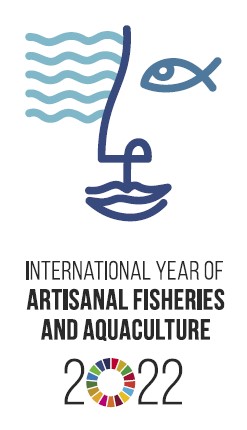
From vulnerability of small scale producers of aquatic foods to resilient food systems
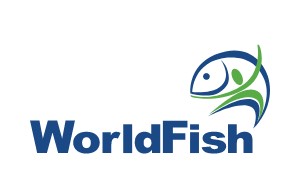 A flourishing of research and policy engagement – including that by the V2V network – has led to increased understanding of the multiple causes of vulnerability in small-scale fisheries and has identified pathways to viability, including through the application of the FAO voluntary guidelines on small-scale fisheries. In this presentation, Dr. Edward H. Allison argues that both the research and policies are sufficiently well developed to support viable pathways to enable small-scale fisheries and fisherfolk to thrive,
A flourishing of research and policy engagement – including that by the V2V network – has led to increased understanding of the multiple causes of vulnerability in small-scale fisheries and has identified pathways to viability, including through the application of the FAO voluntary guidelines on small-scale fisheries. In this presentation, Dr. Edward H. Allison argues that both the research and policies are sufficiently well developed to support viable pathways to enable small-scale fisheries and fisherfolk to thrive,
Small-Scale Fisher Leadership in Environmental Stewardship
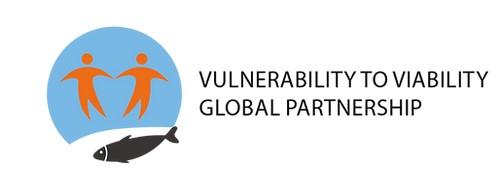 In the January 2022 of the V2V thematic webinars Tony Charles discusses the leadership of small-scale fisher communities and organizations in protecting and restoring local environments and engaging in fishery management activities. Such environmental stewardship supports and enhances the viability of fishing livelihoods, as well as demonstrating that bottom-up community-based conservation can be the most effective way to produce big conservation benefits.
In the January 2022 of the V2V thematic webinars Tony Charles discusses the leadership of small-scale fisher communities and organizations in protecting and restoring local environments and engaging in fishery management activities. Such environmental stewardship supports and enhances the viability of fishing livelihoods, as well as demonstrating that bottom-up community-based conservation can be the most effective way to produce big conservation benefits.
.
|
Thank you for your support throughout the year 2021!
|
|
Wellbeing small-scale fishers derive from ecosystem services
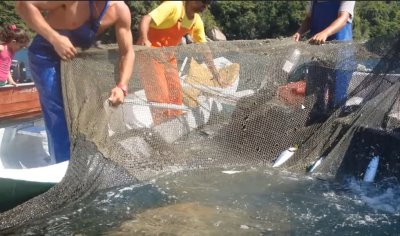 The last monthly lecture in 2021 organised by the V2V research initiative was delivered 17 December by Ana Carolina Esteves Dias, currently at Waterloo University, Canada. She talked about how the notion of wellbeing had evolved starting from the 1980s from a cultural notion to today's emphasis on people-nature relationship. In between the attention had shifted to the economic conditions sustaining a good life and later also included non-economic values. Wellbeing was one of the ways to understand what enticed people to get into and/or to stay in small-scale fishing and related activities and made the profession viable.
The last monthly lecture in 2021 organised by the V2V research initiative was delivered 17 December by Ana Carolina Esteves Dias, currently at Waterloo University, Canada. She talked about how the notion of wellbeing had evolved starting from the 1980s from a cultural notion to today's emphasis on people-nature relationship. In between the attention had shifted to the economic conditions sustaining a good life and later also included non-economic values. Wellbeing was one of the ways to understand what enticed people to get into and/or to stay in small-scale fishing and related activities and made the profession viable.
The Academy continues its work in Yoff
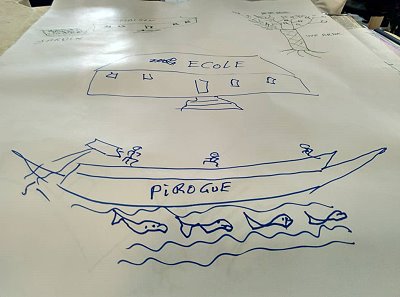 From November 22 to 24, 2021, the next capacity strengthening workshop was held for those enrolled in the Yoff Artisanal Fisheries Academy, Senegal. This workshop was long awaited because the activities of the academy had been put at half mast for almost two years because of the health crisis. The objective of the workshop was for the participants to take stock of the work accomplished, to continue with the analysis of the value chain of artisanal fishing in the Yoff area and to develop individual and collective action plans for the next 12 months.
From November 22 to 24, 2021, the next capacity strengthening workshop was held for those enrolled in the Yoff Artisanal Fisheries Academy, Senegal. This workshop was long awaited because the activities of the academy had been put at half mast for almost two years because of the health crisis. The objective of the workshop was for the participants to take stock of the work accomplished, to continue with the analysis of the value chain of artisanal fishing in the Yoff area and to develop individual and collective action plans for the next 12 months.
Adaptability of small-scale fisheries in the Caribbean
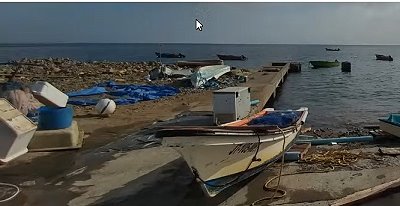 The November 2021 webinar of the V2V research platform featured Jeremy Pittman of the University of Waterloo. Together with colleagues from the Fisheries Department in Dominica and of the University of Waterloo Jeremy has done on-site research in this Caribbean island. His talk was titled 'Identifying entry points to enhance the adaptive capacity of small-scale fisheries communities'. The basic hypothesis presented was that small-scale fisheries with high adaptive capacity have a higher viability than those with low adaptive capacity.
The November 2021 webinar of the V2V research platform featured Jeremy Pittman of the University of Waterloo. Together with colleagues from the Fisheries Department in Dominica and of the University of Waterloo Jeremy has done on-site research in this Caribbean island. His talk was titled 'Identifying entry points to enhance the adaptive capacity of small-scale fisheries communities'. The basic hypothesis presented was that small-scale fisheries with high adaptive capacity have a higher viability than those with low adaptive capacity.
Illuminating the Hidden Harvest – a snapshot
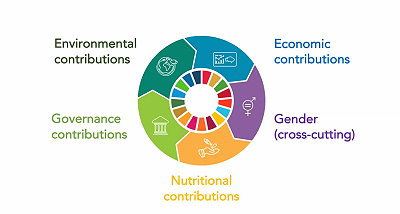 FAO’s webinar on 23rd November 2021 provided a snapshot of major outcomes of an in-depth study ‘Illuminating the hidden harvest – the contribution of small-scale fisheries (SSF) to sustainable development’ undertaken by >800 experts with case studies in 58 countries covering important marine and inland fisheries. FAO, Duke University and WorldFish launched this initiative in 2017, inspired by the 2012 World Bank report casting light on the much neglected contributions of artisanal fishers - men and women. The full report, including recommendations, will be available in early 2022.
FAO’s webinar on 23rd November 2021 provided a snapshot of major outcomes of an in-depth study ‘Illuminating the hidden harvest – the contribution of small-scale fisheries (SSF) to sustainable development’ undertaken by >800 experts with case studies in 58 countries covering important marine and inland fisheries. FAO, Duke University and WorldFish launched this initiative in 2017, inspired by the 2012 World Bank report casting light on the much neglected contributions of artisanal fishers - men and women. The full report, including recommendations, will be available in early 2022.
Overfishing and Sustainable Development Goals - a misfit
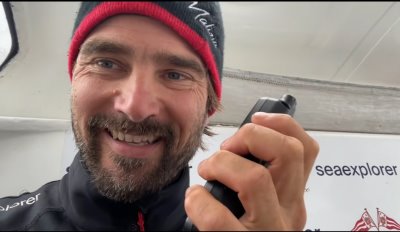 Studium oecologicum is a core programme in support of sustainability organised by a group of student representatives at the University of Potsdam for students from any branch of studies. Cornelia E Nauen of Mundus maris was invited in this context to give a talk on 19 November 2021 on the meaning of overfishing and its relation to the globally accepted Sustainable Development Goals. Overfishing is often associated with unsustainable or even criminal practices and has far-reaching negative effects on marine biodiversity, the capacity of the ocean and its ecosystems to cope with climate change, our seafood supplies and on the lives of people depending on a healthy ocean in artisanal fisheries.
Studium oecologicum is a core programme in support of sustainability organised by a group of student representatives at the University of Potsdam for students from any branch of studies. Cornelia E Nauen of Mundus maris was invited in this context to give a talk on 19 November 2021 on the meaning of overfishing and its relation to the globally accepted Sustainable Development Goals. Overfishing is often associated with unsustainable or even criminal practices and has far-reaching negative effects on marine biodiversity, the capacity of the ocean and its ecosystems to cope with climate change, our seafood supplies and on the lives of people depending on a healthy ocean in artisanal fisheries.
Virtual launch event FAO: International Year of Artisanal Fisheries and Aquaculture
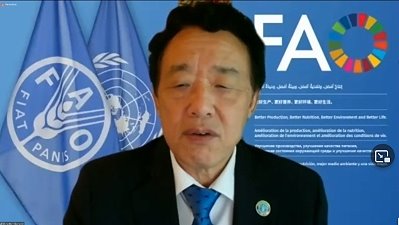 The Director General of FAO, QU Dongyu, opened the International Year of Artisanal Fisheries and Aquaculture (IYAFA 2022) in a virtual event organised by the Food and Agriculture Organization of the United Nations on 19 November 2021. In attendance were senior government officials and representatives of small-scale fishers and aquaculturists.
The Director General of FAO, QU Dongyu, opened the International Year of Artisanal Fisheries and Aquaculture (IYAFA 2022) in a virtual event organised by the Food and Agriculture Organization of the United Nations on 19 November 2021. In attendance were senior government officials and representatives of small-scale fishers and aquaculturists.
Kiel - International Fisheries Week - Ocean Days
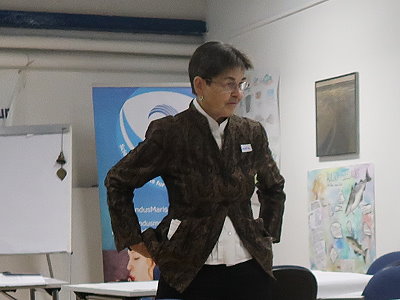 Ocean Philosophers and Mundus maris teamed up for a workshop on sustainable fisheries in Kiel, 17 November 2021, to cast some light on the difficulties of small-scale fishers in Europe and seek ways to support their low impact activities with high potential to lead to sustainable forms of fishing. That was intended to be a contribution to the Fisheries Week organised as part of the Ocean Summit in Schleswig Holstein, northern Germany. In particular, the event was to highlight World Fisheries Day, which is celebrated the world over each year on 21 November.
Ocean Philosophers and Mundus maris teamed up for a workshop on sustainable fisheries in Kiel, 17 November 2021, to cast some light on the difficulties of small-scale fishers in Europe and seek ways to support their low impact activities with high potential to lead to sustainable forms of fishing. That was intended to be a contribution to the Fisheries Week organised as part of the Ocean Summit in Schleswig Holstein, northern Germany. In particular, the event was to highlight World Fisheries Day, which is celebrated the world over each year on 21 November.
Large-Scale Marine Protected Areas in International Waters - Antarctica
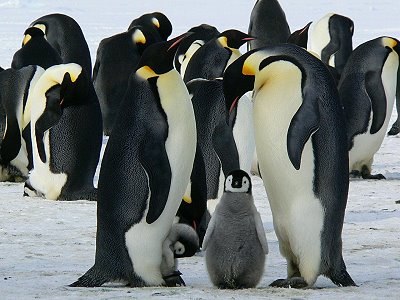 CAMLR’s Role for Climate Change Mitigation, Biodiversity and Fisheries
CAMLR’s Role for Climate Change Mitigation, Biodiversity and Fisheries
The Convention on the Conservation of Antarctic Marine Living Resources (CAMLR Convention) originates from the Antarctic Treaty and is thus firmly linked to a political treaty. It also has its own well established convention principles, including the designation of Marine Protected Areas (MPAs) as a standing agenda item since 2002.








